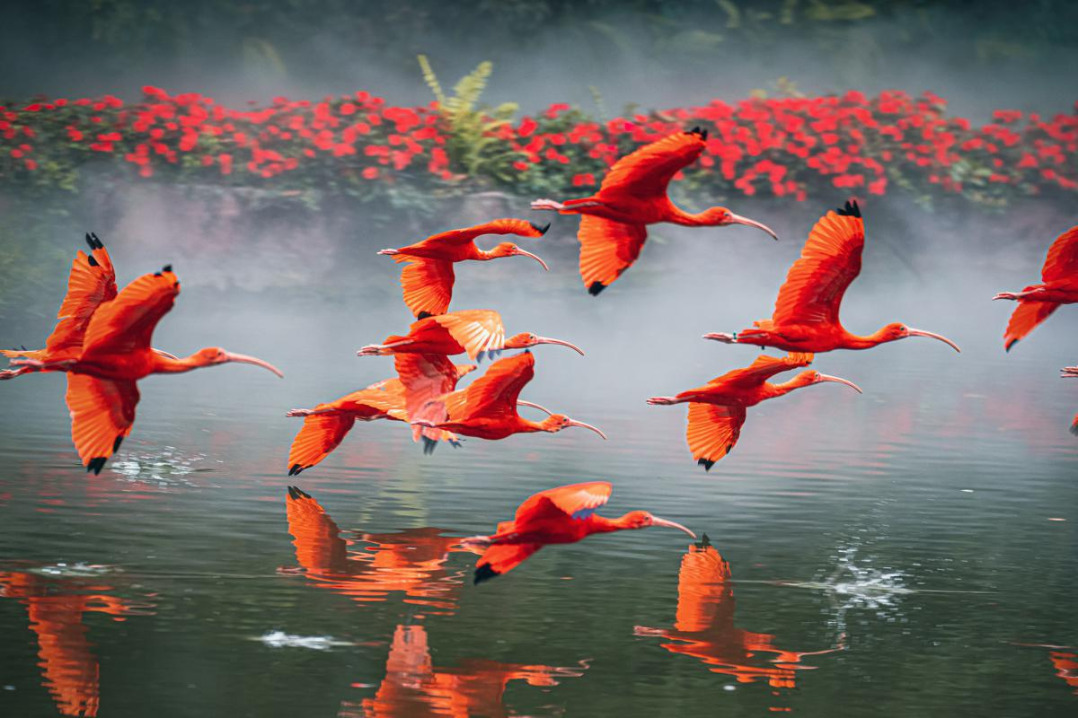Dali pledges to intensify preservation of environment

Dali, a popular tourist attraction in Southwest China's Yunnan province, known for its pleasant climate and stunning natural scenery, has pledged to intensify efforts in wetland preservation, aiming to promote sustainable and high-quality development, said its mayor.
Mayor Wang Jian made the remarks after the city was accredited as an international wetland city on Thursday during the opening of the 15th Meeting of the Conference of the Contracting Parties to the Ramsar Convention on Wetlands, or COP15, which is being held in Zimbabwe's resort city of Victoria Falls.
The accreditation was also given to eight other Chinese locations: Chongming in Shanghai, Fuzhou in Fujian province, Hangzhou in Zhejiang province, Jiujiang in Jiangxi province, Lhasa in the Xizang autonomous region, Suzhou in Jiangsu province, Wenzhou in Zhejiang and Yueyang in Hunan province.
Apart from two major criteria of having a wetland coverage rate of more than 10 percent within the administrative area and a wetland protection rate of no less than 50 percent, cities applying for accreditation should also consider the relationship between wetlands and human activities, according to the National Forestry and Grassland Administration.
Wang emphasized the significant importance and far-reaching implications of the accreditation for Dali, saying: "It will also encourage us to explore a green-based, high-quality development pathway for outskirts, densely populated areas and regions with scarce land resources across the city. This pathway should prioritize fostering harmonious coexistence between humans and wetlands, as well as improving mutual prosperity between wetland conservation and urban development."
He took Dali's Erhai Lake as an example, explaining that the construction of its ecological corridor has gradually restored adjacent forest belts and marsh wetlands, thus halting the degradation of the wetlands and maintaining their current state.
Simultaneously, this effort has also helped to restore the biodiversity of the wetland system and its water purification function, Wang added.
According to the city government, as of February, Dali's wetland area consisted of rivers, lakes, meadows, marshes and ponds spanning an area of some 26,782 hectares, with a wetland coverage rate of 15.4 percent.
It revealed that the conservation efforts around Erhai Lake also include the closing of 57 non-coal mines, with locals forbidden from garlic cultivation, so as to reduce chemical fertilizer pollution in the lake, and promoting organic farming practices such as cultivation of pollution-free seaweed resources to improve water quality.
The resurgence of the purple swamphen, a species of bird once thought to be extinct, in locations like Erhai Lake underscores the success of conservation initiatives in the area, it said.
The region's proactive measures have extended to the breeding of endangered species like the glossy ibis in the Jianhu Wetland Nature Reserve in Jianchuan, Dali, it added.
To date, Erhai Lake has documented 263 bird species, and Dali is also home to 170 species of terrestrial wildlife — under national protection — with significant ecological, scientific and social value. In addition, since 2018, more than 1,800 households have been relocated for ecological preservation, and a 129-kilometer ecological corridor around the lake has been established, it said.
- Dali pledges to intensify preservation of environment
- SCO summit in Henan promotes common prosperity
- Language education seen as key link in intl relations
- 15th Natl Games to fast-track Greater Bay Area integration
- Expert: 'Taiwan independence' has no future
- Beijing's Summer Palace rolls out multi-language translation machine




































